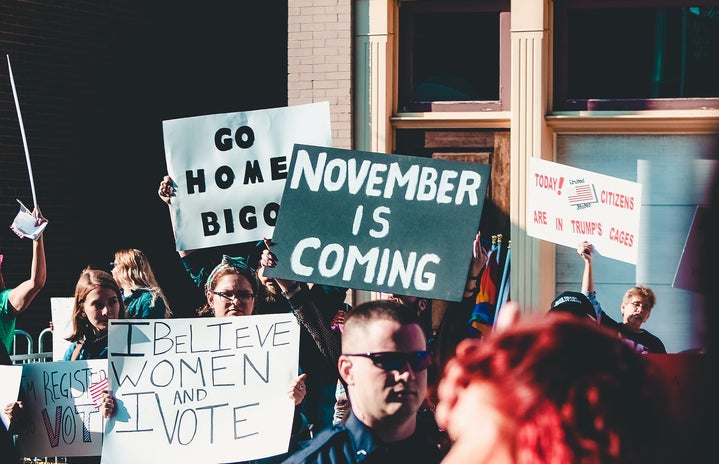A recent NBC interview with Democratic nominee for Senate John Fetterman has many voters up in arms after reporter Dasha Burns insinuated that Fetterman couldn’t understand what she was saying because of his need for a captioning system for an auditory processing disorder.
Burns said that “in small talk before the interview without captioning, it wasn’t clear he was understanding our conversation.”
In making this statement before the interview was even shown, she took the attention off of Fetterman’s policy initiatives and how important accessibility to captioning systems is and instead put the public eye on his competency as a politician.
This isn’t the first time Fetterman, who suffered a nearly-deadly stroke in May of 2022, has fought against ableist claims that he isn’t well enough to be in office. Despite his doctor releasing a statement that he is fully making a recovery and is fit to run for office, his candidate, Mehmet Oz, has heavily relied on questioning Fetterman’s health to advance his race, with remarks about Fetterman not eating his vegetables and lying about his health.
For Oz’s background on lying about medication, the medical field, COVID-19, and dieting, read here.
This isn’t a partisan controversy either: reputable sources like the Washington Post have also questioned Fetterman’s health, stating that he has “been halting in his performances.”
Fetterman says he is “fit to serve…[his doctor] clearly stated that I am fit to serve.” His struggle to reacquire legitimacy against questions of disability is not the first time a politician has fought ableist claims, and if history says anything, it will not be the last.
Beyond the Fetterman-Oz race, prejudice against disabilities in politics has been an issue for years, and yet the underlying negative attitudes against those with disabilities are rarely highlighted in mainstream media.
Stigma against those with disabilities is a time-honored American tradition, with the most obvious example of this being with former President Franklin Delano Roosevelt. Roosevelt, after years of battling “not fit to run” rumors after losing mobility from polio in 1921, worked vigorously to limit images of him in a wheelchair during his career. In fact, in a statue of Roosevelt in his memorial in Washington D.C., he is standing. In another statue in the same memorial, his wheelchair is almost completely obscured by a cloak — the stigma against his conditions haunting his image close to a century after he lost the ability to walk.
It wasn’t until 2001 that a statue of Roosevelt in his wheelchair, simple and transparent, was added to the memorial after years of petitioning by disability advocacy groups. This statue is arguably the most emotional and profound one in the memorial.
Even lesser known than Roosevelt’s struggles with disability stigma were those of former President John Fitzgerald Kennedy. Kennedy, throughout his entire life, was “a very sick man,” with debilitating spinal problems, digestive issues, and Addison’s disease, an insufficiency of the hormones that manage stress in the body — so much so that he was rejected by the U.S Army and Navy when volunteering for service.
This is vastly unknown to the general public. Both Roosevelt and Kennedy reached approval ratings of up to 80% during their terms — these numbers are unthinkable today. Would they even have been elected if fully transparent with their ailments? It’s impossible to know.
Even though two of the most popular American presidents in history have had severe disabilities, John Fetterman is still facing prejudice about his capability as a leader.
While yes, more physical disabilities (such as wheelchair use, as seen with Illinois Senator Tammy Duckworth and North Carolina Representative Madison Cawthorn) are becoming more accepted; invisible disabilities are still incredibly controversial to the public.
President Biden is routinely mocked for his stutter, which he has had since he was a young boy (read a compelling interview with President Biden, conducted by a journalist with a stutter here). As we already know, John Fetterman is losing legitimacy because of an auditory processing disorder. And those are the successful ones.
61 million adults in the United States have a disability. While distrust in the government is strong for any United States citizen, it’s stronger for these 61 million.
Voting accessibility is ultimately decided by regional and state law, making the ability to vote vary widely depending on where you live. Mail-in voting is consistently under attack, making voting in person for many disabled citizens “a test of endurance, rather than a civil right.”
Unlike salient issues like abortion, climate change, or gun control, disability law is not even addressed by some candidates, specifically Republicans.
Article 29 of the Convention of the United Nations on the Rights of Persons with Disabilities (find the easy-to-read version here) states that “all people with disabilities have the same right to take part in politics as other citizens.” While this is a step in the right direction, we run into the problem we always do with UN Declarations: they aren’t legally binding. They certainly don’t have absolute power over the opinions of citizens either.
In 2019, the first study of disability among American politicians ever found a 5.4% gap between adults with disabilities and elected officials with disabilities, with citizens being underrepresented. This includes local officials — at the federal level, it’s about a 9% gap. In a self-reported Pew Research Center article, the gap is much higher.
A simple, off-hand comment by Dasha Burns about Fetterman’s need for closed captioning may seem like a small hiccup on her part, but it’s exposed the dark history of disability in politics for a new generation, who may not remember the controversy behind former President Franklin Delano Roosevelt’s wheelchair statue, or may not have understood why so many made fun of (and still make fun of) President Biden’s stutter.
Beyond Fetterman, beyond Biden, even beyond FDR: political prejudice against disability runs free, and only time will tell when its decades-long reign will finally stall to an end.


